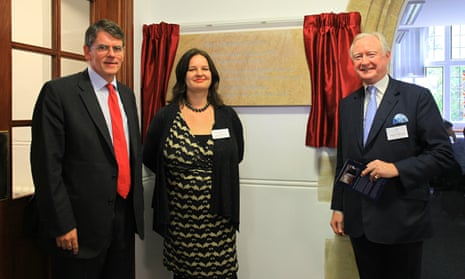Sara Davidson is a German teacher and head of modern languages at Oundle School, Peterborough. While learning German is not always a popular choice among UK students, the number of sixth-formers taking it at Davidson’s school has quadrupled thanks to her efforts to promote it in the past six years. In July 2014, she won an award from the German embassy for “setting standards of excellence” in the teaching of German as a foreign language in Britain.
German is the most important language in Europe. Developments in the EU and German chancellor Angela Merkel’s efforts to make the country a more prominent power have boosted interest in German among students. Germany is the biggest exporting nation in Europe and there are many career opportunities in the country. The language is also in demand because, despite Germany having the largest number of native speakers in Europe, few people outside the country actually speak German.
But there’s still a cloud hanging over learning German, and promoting it is a full-time job. People perceive it as being difficult to learn. It’s a struggle to get students interested. It took four or five years to change the mindset at Oundle school. In the end, it came down to the teaching and developing the right rapport with the students.
But pupils also need to feel confident that their teachers are good and that they will help them get the grades. They don’t want just fun and games, they want to achieve as well.
I have quadrupled the number of pupils studying German. The numbers have gone up among sixth-form students between 2008 and 2013. The main barrier to getting students interested is the perception that it is hard to get good grades in German. It’s true that it is much more difficult to get that elusive A* in languages than it is in other subjects. So in German we brought in the pre-u exam (a tougher A-level alternative) for sixth formers. In some ways it’s more rigorous – it is a more traditional way of testing – but it allows teachers and students the freedom to go into more detail on certain topics. That has proved really popular and the course has brought more students to us. It has also meant grades have improved.
Keeping students entertained along the way helps. As well as themed trips to Germany, from discovering Grimm’s fairytales in Hamelin to exploring Berlin, we held a mini-Oktoberfest for the sixth form. The festival involved beer tasting and an introduction to the drinks by a former pupil who studied brewing in Munich, Germany’s third largest city. Introducing German current affairs into lessons is also critical. As a teacher you should keep up to date with what is going on in the country. You want to be celebrating every possible event in the news.
We now have state-of-the-art languages facilities comparable to a university. This follows a four-year battle to get a new modern language building in my school. When I first started as head of department, there were 19 teachers sharing eight full-time classrooms. With groups of up to 24 pupils, we constantly had to move around, so I invited the headmaster on a tour around the department. But there were questions around money and where we would go. The problem was that our exam results were already good and we needed to be really persuasive to show that a new building was still needed.
Luckily we had funds that people had previously talked about using to buy a house in France for students to use for study trips. In the end, I insisted that the money be used instead, alongside other fund-raised cash, to pay for a new school building. It’s amazing; each language assistant now has their own little glass pod for one-to-one conversations, with touch screen computers. We have skype facilities, with a big lens so we can film the whole class. There are also two language labs and 14 full-time classrooms. It’s wonderful.
When I hear how many ex-pupils are using German in their career, it makes me feel great. I quite often invite former students to come in and talk to pupils. It helps me to persuade other people to take German to a higher level if I can tell them about the various pupils who work over there and have highly successful careers. One of my students is now a property developer in Berlin and owns over 25 flats, while others are musicians. It’s very satisfying when you hear of these young people doing so well and using that subject that you love as well to succeed.










Comments (…)
Sign in or create your Guardian account to join the discussion